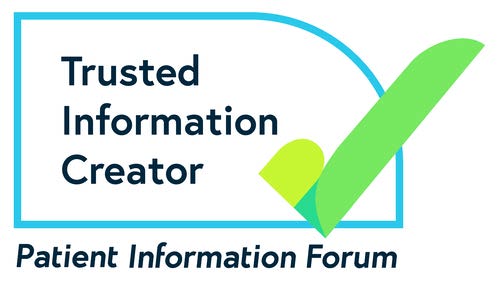Psoriasis patient journey
Psoriasis is a common skin condition that affects approximately 2% of the UK. Psoriasis is caused by the skin cells replacing more quickly than usual, which results in patches of dry, red skin which is covered with silvery scales (often referred to as plaques). Some may also find that these patches are sore or itchy.
We don't know exactly why some people suffer from psoriasis, although research suggests that it be caused by the immune system attacking healthy skin cells. Psoriasis can run in the family, with one in three patients having a family member who has also been affected. Some people with the condition may find that certain environmental factors (for example the weather, diet, smoking, illness) cause symptoms to worsen.
There are four types of psoriasis
A diagnosis will be made depending on the number of affected areas you have and where the psoriasis is located:
- Chronic (long-term) plaque psoriasis - the most common type of the condition. Plaques will affect the knees, elbows, trunk and scalp
- Guttate psoriasis - this type of psoriasis often develops after a streptococcal throat infection and will more commonly be seen in teenagers and children. Symptoms include small drop-shaped sores on the chest, arms, legs and scalp
- Palmoplantar psoriasis - affecting mainly the hands and feet
- Pustular psoriasis - a rare type of psoriasis where pus-filled blisters appear on the skin. There are various different types of pustular psoriasis
Many psoriasis sufferers also experience nail related symptoms which include:
- Thickening of the nails
- Indentations on the nails (pitting)
- Separation of the nail from the nail bed
- Nail discolouration
The range of symptoms someone will experience will depend on the type of psoriasis you are affected by.
Visiting your GP
If you suspect you have psoriasis, you should make an appointment to see your doctor, who will usually be able to make a diagnosis based on an examination of your skin, scalp and nails. The GP may also ask about your medical and family history – including how long you have been suffering from the symptoms, whether you have found certain things which may trigger a flare-up of symptoms, the presence of any factors that improve or worsen the condition (including any joint symptoms). If your GP is uncertain, a referral to a dermatologist (skin specialist) may be required. If your symptoms are found to be severe, specialist treatment might be sought.
Patients with psoriatic arthritis (a form of arthritis affecting some of those with the condition) may be referred to a rheumatologist (a specialist in musculoskeletal diseases and autoimmune disorders) for specialist treatment.
Treatment
Although there is no cure for psoriasis currently, there are many treatment options that may help your symptoms improve.
Mild cases can be helped greatly by topical treatments in the form of creams, ointments, and lotions. It is widely agreed that keeping the areas moisturised is very important. Some moisturisers (also referred to as emollients) can be purchased over-the-counter; others can be prescribed by your GP. Those living with the condition may also want to consider the clothesthey wear, the laundry detergents they use, and the food they eat (vitamins and other supplements may help). Bathing with Dead Sea salts may also help to ease symptoms. Individuals with psoriasis on the scalp may consider using special shampoos (many hair products popular among psoriasis sufferers, for example, contain coal tar). For more severe cases, specialist treatments are available in the form of antibiotics, steroids, light therapy and relatively new treatments such as biologics (drugs made from living materials, usually introduced by injections).
Many people find they can cope with their symptoms using the lifestyle management measures and topical treatments mentioned above. For others, psoriasis can have a severe impact on their wellbeing, both physically and mentally. It’s important to tell your doctor if you feel your symptoms are affecting your quality of life.
It may also be helpful to seek out support and advice from charities and related groups. talkhealth works with The Psoriasis Association, as well as some more general support groups for skin conditions, such as the British Skin Foundation, the British Association of Dermatologists, the British Association of Skin Camouflage, and Skin Deep Behind the Mask.
You can also find support in our talkpsoriasis forum, and follow the latest developments in the world of psoriasis on our psoriasis blog.
Sources used in writing this article are available on request.
Information written by the talkhealth team
Last revised: 15 May 2020
Next review: 15 May 2023


